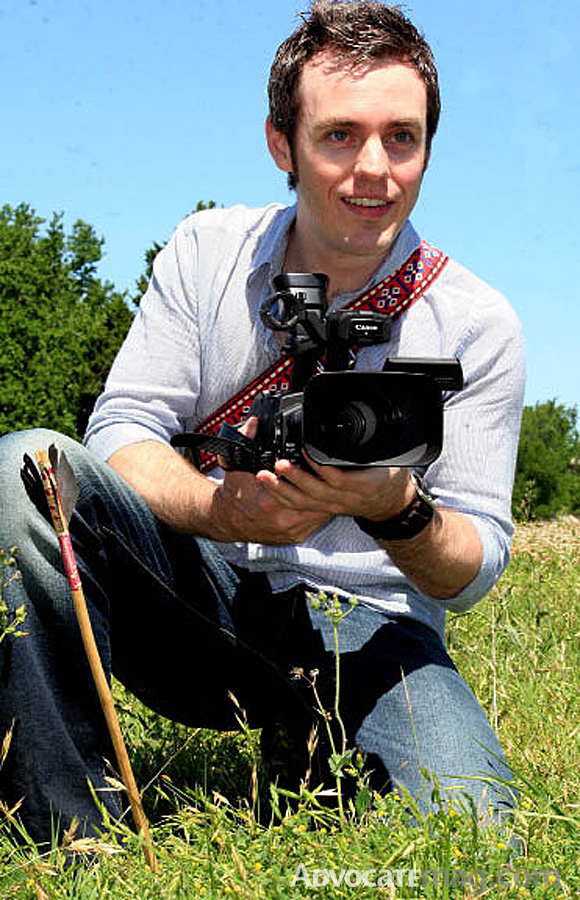A Lake Highlands High School grad gives a voice to a quiet and long-suffering African subculture
The people of Maai Mahiu, Kenya are no strangers to calamity. Through both the media and philanthropic organizations, we hear regularly about Africans’ struggles with disease, poverty, hunger, political unrest and ethnic violence.
But there are some we don’t hear about, and Lake Highlands graduate Aaron Bratcher is working to bring their story to the screen.
In Kenya, children who have disabilities are often hidden from the rest of the community. Their families are shunned, and it is common belief that mothers who give birth to disabled children have done something sinful to deserve it. A disability, to them, is a curse, Bratcher says.
“There is so much stigma and shame attached to disability — physical and mental alike — that parents sometimes abandon their children, or hide them,” he explains. “We interviewed one woman whose disabled child was several years old before her closest friends even knew that the child existed.”
Austin, Texas resident Zane Wilemon, a seminary student and part-time pastor, founded a nonprofit called Comfort the Children after he witnessed unbearable poverty and suffering in Maai Mahiu. Today, the nonprofit’s office in Africa staffs about 30 people, and helps African families in various ways, Bratcher says.
It was only after several trips to Maai Mahiu that Wilemon learned about the subculture of children with disabilities and their mothers.
“They were meeting in a small church, and the mothers were finding hope in one another,” Wilemon says in a trailer for the movie Bratcher is making.
Wilemon figured he could help them by telling people about them. For help, he hired Bratcher, who has a minor filmmaking degree from SMU along with some experience.
“When I got involved,” Bratcher says, “[Wilemon] had this story — this really compelling story — to tell. These people are not the ones you think about when you’re dealing with all of the problems that Africa faces.
“But imagine if you were struggling with all the other issues and trying to raise a disabled child in that type of environment. The story will be told through the mouths of these mothers, because many of the children can’t speak.”
Bratcher and Wilemon spent last summer shooting video and getting to know the people of Maai Mahiu. When they returned, Bratcher put together a heart-wrenching movie trailer. Viewers pledged $10,000 during the first week it was online.
That covers the travel expenses for this summer, Bratcher says.
Now they have to keep going and raise enough for administrative costs, post-production video and audio, “enough peanut butter sandwiches to see us through to the end”, that sort of thing.
Bratcher has been a “movie buff” forever, and since attending SMU, has exhibited a knack for poignant filmmaking, says his father, John Bratcher, who lives with Aaron Bratcher’s mom, Mary Beth, in Lake Highlands. “That is his first passion.” A friend told John Bratcher that the work in Kenya would change his son’s life. “It did, and [helping the children in Maai Mahiu] became his new passion,” John Bratcher says. “In fact, it changed all of our lives. I would be lying if I said his mother and I weren’t a little concerned about him spending another four weeks there, but we are so proud of what he is doing. If it weren’t for people helping [these children], they would not have a life.”
The young filmmaker says he’s not sure when the movie will be finished. It depends on what they are able to record while in Kenya this month.
“You’re never really sure what’s going to happen, so it’s tough to plan ahead,” he says. “There are already a few compelling storylines that we have been following since last time.”
There is Fatima, a 15-year-old paraplegic girl he encountered lying on the floor of a tent in an IDP (Internally Displaced People) camp. Or 7-year-old Njuguna, who can’t speak or walk. Njuguna’s mother, Monica, is devastatingly poor, and has four other children and an abusive husband who is infected with AIDS. Through Comfort the Children, Aaron Bratcher has been able to stay informed about their lives and will reunite with them this summer as he films the next chapter of their stories.
Through his final product, Bratcher hopes people will bond with the Maai Mahiu families.
“Comfort the Children is based on relationships. I hope the audience will connect with the mothers and children in the movie and be compelled to get involved in some way, whether its giving, volunteering, or even traveling to Maai Mahiu,” he says. “But most of all, I just hope to create a relationship between the viewers and these incredible mothers.”
—Christina Hughes Babb






